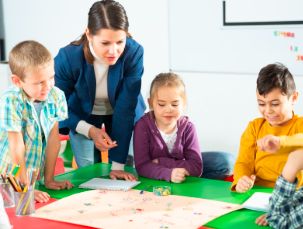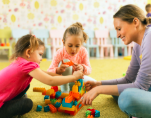Children are natural explorers. From an early age, they show curiosity about how the world works, asking questions, touching, experimenting, and testing their ideas. Supporting learning through discovery can be one of the most powerful ways to help children grow into confident, capable thinkers. This approach encourages them to take the lead, engage actively, and build meaningful understanding at their own pace.
What Is Discovery Learning?
Discovery learning is an educational approach that focuses on hands-on experiences. Instead of simply being told facts, children are encouraged to investigate, observe, and draw conclusions. Whether it’s mixing colors, building with blocks, or examining insects in the backyard, discovery learning fosters creativity and independent thought.
Why It Works So Well
This method is highly effective because it taps into a child’s natural curiosity. It makes learning more memorable and enjoyable by connecting ideas to real-life experiences. It also promotes critical thinking, problem-solving, and resilience. When children figure something out on their own, they feel a sense of pride and ownership in what they’ve learned.
Ways to Encourage Discovery at Home and School
-
Create a Safe Space for Exploration
Set up areas where children can play freely with age-appropriate materials. Items like building toys, art supplies, measuring cups, or nature collections invite creative thinking and experimentation. -
Ask Open-Ended Questions
Instead of giving answers, try asking questions like, “What do you think will happen?” or “How did you figure that out?” This encourages reflection and deeper thinking. -
Let Mistakes Be Part of the Process
Discovery often involves trial and error. Encourage children to see mistakes as part of learning rather than something to avoid. Support their efforts by recognizing the process, not just the outcome. -
Explore the Outdoors Together
Nature is a perfect classroom. Walks, gardening, or simple observation of weather patterns can open the door to countless questions and discoveries. -
Integrate Discovery Into Daily Routines
Even routine activities like cooking, sorting laundry, or watering plants offer opportunities to explore concepts like counting, cause and effect, or categorization.
The Role of Adults in Discovery Learning
Parents, teachers, and caregivers play a crucial role—not by providing all the answers, but by guiding and encouraging the process. Being patient, listening actively, and offering thoughtful support can help children feel confident in their abilities and excited to learn more.
Final Thoughts
Helping children learn through discovery is about more than just play—it’s about giving them the tools to think critically, ask questions, and build a lasting love of learning. By creating opportunities for exploration and being supportive guides, adults can help children grow into lifelong learners who are ready to meet the world with curiosity and confidence.


